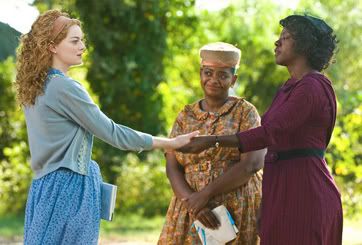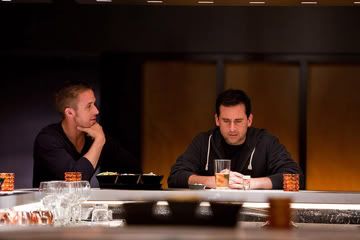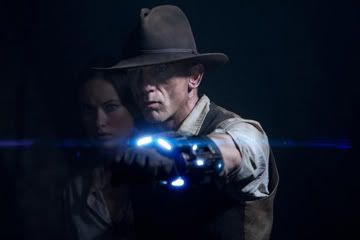

"The Help" (2011)
It's 1961 in Jackson, Mississippi at the height of the Jim Crow era in the heart of the Deep South middle class. While blacks and whites co-exist casually and brushing shoulders every single day on a regular basis, they are still separate and not equal. White women go about their days of leisure while their black maids take care of the house raising the women's white children. And while they're called maids, they might as well be titled house slaves and -- even more -- surrogate mothers. "The Help," the alive and rich adaptation of Kathryn Sockett's 2009 bestselling novel, is aware of the sobering truth at its center: segregation in the South wasn't just wrong -- it was a grand and sweeping delusion as a proper way of life.
The story is told from the perspective of Aibileen Clark (Viola Davis), a maid who says she's raised 17 white children in her lifetime. Her grandmother was a maid, her mother was and so is she. Your heart breaks for her when Skeeter (Emma Stone) -- the journalist writing a book composed of interviews with the maids of Jackson -- asks Aibileen if she wants to do something more. The book is dangerous to write exposing the unfair and cruel Southern domestic life these women endure. Completing the book is the film's narrative force, and Emma Stone carries the leading role well. We've seen her as a chipper comic, but here she plays a woman grown to be disturbed by what she witnesses around her.
Take for example when Skeeter persistently questions her mother (Allison Janney) on what happened to Constantine (Cicely Tyson), their maid of 29 years who mysteriously left. The betrayal she feels after hearing the answer brings the South's wrenching moral condition to a personal level. Skeeter takes a job at the Jackson Journal writing a cleaning advice column and recruits Aibileen for help; this leads to the collaboration on something much greater.
Bringing a weight and solemn sincerity to the film is the tough and brilliant performance from Viola Davis as Aibileen. Playing Aibileen's best friend Minny is Octavia Spencer (known primarily for smaller roles), and her performance is just as note-worthy full of fiery sass and spark. These women steal scenes left and right, and the movie becomes solely theirs weaving a story of aspirations and squandered dreams.
Like the book Skeeter is writing, this is the story of the maids and the women they work for. Under the facade of prim and proper bridge games and fundraiser benefits, saying these women take what they call the help for granted would be an extreme understatement. It does, however, seem like most of the women have feebly accepted the social norm and treat their black maids how they have been shown they should be treated. That is except for Hilly (Bryce Dallas Howard), a vile princess and blatant racist pushing for separate outdoor bathrooms for the black maids -- the domestic equivalent of being forced to the back of the bus. She fires Minny sending her over to Hilly's archenemy Celia (Jessica Chastain of "Tree of Life"), a flaky but well-meaning blond bimbo who hires Minny without the knowledge of her husband; that way home-cooked meals and a clean house look readily prepared by Celia.
When opting for light humor, the movie really gets the laughs. This is especially true when Minny surprises Hilly with a very special dessert delivering hilarious returns. The incident does get played to overkill, however, and here newcomer writer/director Tate Taylor lays bare the film's obvious intentions as a surefire crowd-pleaser -- but it also worked wonders on me. I didn't mind knowing the exact desired emotions because I felt them -- the warmth and hopeful joy sprung from these women's story showing that cruel people in the world get their just desserts. Pun intended.
What I most admire about "The Help" is how it escapes the bounds of its Oprah book club wrapping with exceptional actresses who all make for a touching and exhilarating tale that, in between the humor, is a truly affecting tear-jerker with characters we are moved by and care about. It also doesn't shy away from the dark ugliness of the era. Within the cheer there's a whole lot of sad and aching pain, and at the film's end is the realization that it's still the same Jackson, Mississippi we started with even after Skeeter finishes writing her book.








